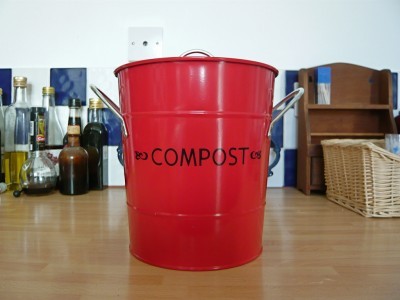
Starting a compost pile is easy, but that doesn’t mean that it is done without a few questions. A common question is what to put in a compost bin, and an even more important question is what not to put in garden compost. Below we will discuss what to put in a compost bin (or keep out) and why.
What to Put in a Compost Bin
At a very basic level, what to compost is as simple as anything made from organic material, but not all organic material is safe for most home compost piles. Without a doubt, the following materials are safe for your compost pile:
- Grass clippings
- Tree leaves
- Vegetable food scraps (coffee grounds, lettuce, potato peels, banana peels, avocado skins, etc.)
- Black and white newspaper
- Printer paper
- Most disease free yard waste
- Cardboard
- Vegetarian animal manure (e.g. cows, horses, rabbits, hamsters, etc.)
- Wood shavings or sawdust
Some items need a little more consideration before you decide if you should compost them or not. These are:
- Non-vegetarian manure – Manure that come from animals that may eat meat, such as dog, cats, pigs and yes, even humans, can be composted, but you need to be aware that their feces can carry pathogens that can spread disease. A compost pile must get very hot before these possibly harmful microbes are killed. If your compost pile does not heat up or if you would rather not worry about it, meat-eating animal feces belongs in the what not to put in garden compost category.
- Noxious weeds – Invasive weeds like creeping charlie or Canada thistle can be composted, but these invasive weeds often come back from even small pieces of plant material. While composting these invasive weeds will not harm your compost, it could help spread unwanted weeds to parts of your yard where you use your compost.
- Food scraps containing some animal products (excluding meat, fat, dairy and bones) – Food scraps with small amounts of eggs, dairy or fats and oils can be attractive to nighttime scavengers like raccoons, rats and opossums. While eggshells, bread and noodles are good for your compost pile, they may cause an unintended pest problem. If your compost bin locks, then you will not have any issues, but if you have an open compost bin, you may want to keep these kinds of items out of it. Eggshells can still be used in an open compost pile if you make sure to wash them thoroughly before composting.
- Color newspaper – Color newspapers (even magazines and catalogs) today are printed with a soy-based ink and is perfectly safe to compost. The problem is that some color printed paper is coated in a thin layer of wax. While this wax is harmless, it can keep the color paper from composting well. You can speed up how fast color paper composts by shredding the paper, but if you do not have the time or means to shred, it may be better to skip composting colored paper.
What Not to Put in Garden Compost
- Diseased yard waste – If plants in your yard become diseased and die, do not place them in the compost pile. A common example is if your tomatoes develop blight or get a virus. Composting items like this will not kill the disease and will make it so they can be spread to other plants. It is best to burn or throw away diseased yard waste.
- Meat, fat (including butter and oil), dairy and bones – Pure meat, fat and bones can not only carry the risk for disease, it also is very attractive to a wide variety of undesirable animals. Even in a securely locked compost bin, these items are enticing enough that an animal may try to damage your compost bin to get at them. This, combined with the risk of disease, means that it is just best to throw these items in the trash rather than use them in your compost.






